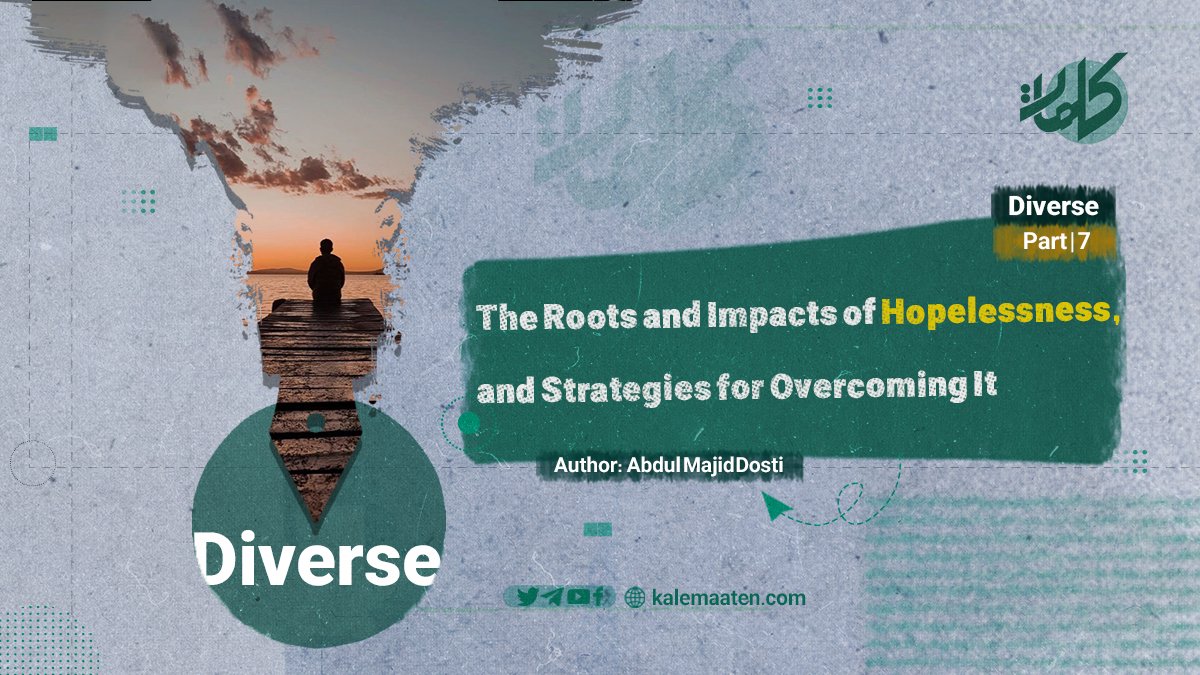
Author: Abdul Majid Dosti
The Roots and Impacts of Hopelessness and Strategies for Overcoming It (Part 7)
In the previous six notes, we discussed and explained the causes of the emergence of a state of Hopelessness in a person. In this section, we will examine the effects and consequences of despair and reveal some of the blind aspects of this abnormal state.
1. Internal Contraction and Weakness in the Physical and Intellectual Organs
There is no doubt that the mind is the ruler, and the body is the subordinate. When the feeling of despair penetrates and attacks the human body, its organs become weak, transitioning from an active state to a passive one; they stop moving and searching. This happens because intellect, wisdom, insight, and knowledge govern the organs and body, and all movements are under their dominion. Consequently, when a person experiences a crisis and their situation changes due to an external factor related to work or life, they may collapse into depression, boredom, and disillusionment.
In the fields of medicine and health, it is noted that more than ninety percent of a patient’s health and recovery depends on their attitude and insight—how they cope with the disease and mobilize their physical defenses to prevent and contain its spread to other parts of their body. It becomes evident that circumstances and conditions significantly affect a person. The more a person becomes ensnared in this crisis and surrenders to despair without taking action to liberate themselves, the deeper they sink into this black hole. They become increasingly vulnerable and weaker, surrendering not only to despair but also to other physical and mental ailments, often very quickly and easily.
Thus, one of the most destructive consequences following a significant event of despair is weakness, boredom, passivity, and stagnation, all of which can halt the progression of a person’s life and block their path.
Continues…


